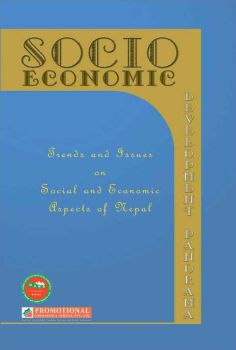Poverty and Inequality: Micro Finance on Gradual Poverty Reduction in Nepal
Keywords:
Poverty, Inequality, Grassroot level, Globalization, Microfinance activities, ConstraintsAbstract
Poverty and inequality bears structural characteristics for Nepal. Feudal system, under-developness, bias planning in the past were the causes of poverty and inequality in Nepal. Besides, low profile of agricultural growth, low pace of industrial development and under utilization human and natural resources were also the causes of poverty and inequality in Nepal. Urban bias mode of development aggravated regional disparity, this also widened gap between haves and haves not. Land and resource's un-equal distribution, regressive public policy further feuled this situation.
Micro Finance (MF) could break existing culture of poverty especially on behalf of rural poor households, disadvantaged, destitute, women, etc. Efforts of Micro Finance Institutions (MFIs) for the expansion of MF outreach is not sufficient enough. Nepal had induced various models of micro-finance. But she lags her own indigenous model. How many MF players in this sector are still unknown. There lags single concrete MF policy to regulate, to supervise and to access such MFIs activities. Commitment for Millennium Development Goals (MDGs) by Nepal and opening of service sector to the foreigners by 2010 urge MF players to have consensus, commitment and engage in this sector on sustainable way.
Socio-Economic Development Panorama, Vol. 1, No. 2(2007) pp. 111-123

